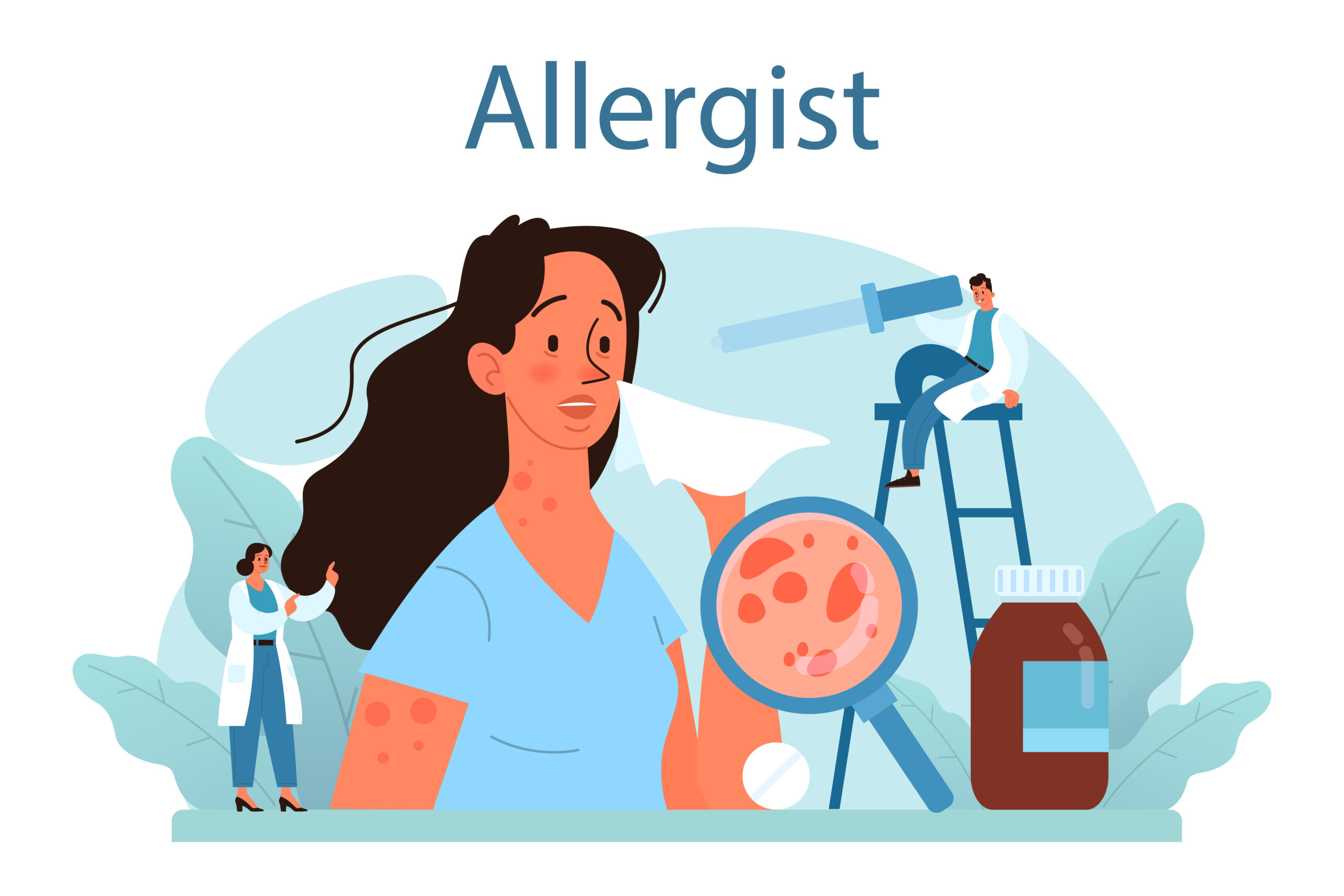Insight Allergy & Immunology – Fall is finally here, which means it’s also the start of cold and flu season. Although we often turn to cold medications at the first sign of a runny nose, sneezing, and congestion, did you know that your symptoms could actually be the result of fall allergies? Unlike a cold, which is caused by a viral infection, fall seasonal allergies are an immune response triggered by common substances in our environment such as ragweed and dust. To help you determine what is behind your symptoms and the best course of action to get well, here are six signs your “cold” symptoms are actually fall allergies.
Persistent Symptoms
One of the first indicators you are experiencing seasonal allergies instead of a cold is the duration of your symptoms. Most colds only last for a few days to about a week. Fall seasonal allergies often persist for weeks at a time or even for the entire season. They can be especially persistent from mid to late September when ragweed and other plant pollen levels are at their highest. Allergy symptoms are also more likely to be experienced immediately after exposure to an allergen, whereas cold symptoms are slower to develop.

Respiratory Symptoms
Both allergies and colds are associated with respiratory symptoms like congestion or a runny nose. However, people with allergies rarely experience aches, fever, and fatigue common with a cold. The consistency of nasal discharge also differs between those with allergies and colds. While allergies mostly produce clear nasal discharge, it tends to be thicker and yellow/green in appearance in colds.
Eye Irritation

If you are experiencing eye discomfort, it is likely the result of seasonal allergies. It is possible to have minor eye redness or irritation if you have a cold; however, red, itchy, and watery eyes are some of the primary symptoms of fall seasonal allergies. This is a particularly common symptom in allergies caused by weed pollens and outdoor molds.

Symptom Patterns
Paying attention to the patterns of your symptoms is an excellent way to pinpoint their underlying causes. Cold symptoms tend to worsen gradually over a few days before improving. Allergy symptoms are more likely to vary based on your exposure to a particular allergen. For example, opening a window or spending time outdoors raking leaves may result in the sudden onset of symptoms. The time of year can also help you determine what is causing your symptoms. Colds are more common in colder weather, while fall seasonal allergies are more common in milder weather.
Response to Medication
If you are experiencing a runny nose or sneezing and do not get relief with over the counter cold medications, your symptoms are likely the result of seasonal allergies. This is because most over the counter cold medications are designed to treat cough and congestion from a virus. On the other hand, allergy medications generally contain antihistamines that target the body’s immune response to an allergen.

History With Allergies
Because the cause of symptoms can be difficult to determine, your personal history can play a key role in identifying whether you are experiencing allergies or a cold. Looking back at your past patterns of allergies, including times of the year they occurred and exposure to specific allergens, can help you determine if you are experiencing allergies or a cold. It’s also important to keep in mind that allergies tend to run in families, so comparing symptoms with close relatives can also help you better understand if you are more susceptible to seasonal allergies.

Fall is the season of runny noses, coughs, and congestion, which is why it is important to understand the differences between cold symptoms and allergy symptoms. If you suspect your symptoms may be related to allergies, it might be a good idea to see an allergy specialist who can properly diagnose your condition and recommend appropriate treatments. Insight Allergy and Immunology is currently accepting new patients in our Flint, Warren, and Dearborn locations. Contact us today to schedule an appointment.
Frequently Asked Questions
Q: Will my fall allergies go away on their own?
A: Fall seasonal allergies usually persist as long as you are exposed to the allergen causing your symptoms. Because most fall allergies are caused by ragweed and other pollen common from late summer through October (or the first frost), symptoms can be managed using over the counter medications and other treatments provided by an allergist.
Q: What steps can I take to limit my exposure to fall allergens?
A: If you are experiencing fall allergy symptoms, try limiting your exposure to allergens by spending less time outdoors, showering after spending time outdoors, keeping windows closed, and using an air purifier in your home.
Q: Is it possible to develop fall allergies later in life?
A: Yes. People can develop seasonal allergies at any point in their life. Relocation to different parts of the country/world and environmental changes are all common reasons people develop seasonal allergies after never experiencing them before.

